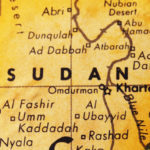
(LONDON) — Fighting in Sudan between forces loyal to two rival generals has triggered a mass exodus of foreigners, while locals struggle to escape.
A number of countries — including the United States, the United Kingdom, Sweden, Spain, the Netherlands, Japan, Italy, Germany, France and Canada — airlifted and evacuated diplomats, embassy staff and others from Sudan’s war-torn capital over the weekend. Both the U.S. and Canadian governments also announced temporary suspensions of operations at their embassies in Khartoum.
An estimated 16,000 Americans — most of whom are dual U.S.-Sudanese citizens — remain in Sudan, according to John Kirby, coordinator for strategic communications at the National Security Council in the White House.
“These are people that grew up in Sudan, work in Sudan, families are in Sudan and they want to stay in Sudan, so it’s a number that is difficult to plan to specifically,” Kirby told ABC News’ George Stephanopoulos in an interview Monday on Good Morning America.
There are also several dozen Americans currently making their way to Sudan’s main seaport via a United Nations-led convoy, which the U.S. is monitoring via “intelligence, surveillance and reconnaissance assets to ensure their safety,” according to Kirby.
“We still have military forces prepositioned in the region ready to respond if need be. But right now, it’s not very safe to try to run some larger evacuation either out of the nearby air base or even just through rotary lift like we did the other night because the fighting is so intense,” he added. “The safest thing for Americans to do — those who have decided to stay in Sudan despite the warnings to leave — is to shelter in place and to not move around too much in the city of Khartoum.”
Meanwhile, many Sudanese civilians are trapped in the crossfire or are risking their lives attempting to flee by car to neighboring countries. Sudanese filmmaker Amjad Abu Alala, who lives in Egypt’s capital, wrote in a Facebook post on Sunday that his family is “on the road from Sudan to Cairo through Aswan.” But he said his uncle’s wife, who has been in a coma since before the conflict, still needs help getting out.
Abu Alala also posted photos that his family had shared showing stray bullets on the balcony and in the exterior walls of their home in Khartoum. He wrote in an earlier Facebook post that he was “very worried about what is happening” in his home country but that “we all saw it coming.”
The violence erupted in Sudan on April 15 in a culmination of weeks of tensions between Gen. Abdel-Fattah Burhan, the commander of the Sudanese Armed Forces, and Gen. Mohammed Hamdan Dagalo, the head of the Rapid Support Forces (RSF), a powerful Sudanese paramilitary group. The two men were once allies who had jointly orchestrated a military coup in 2021 that dissolved Sudan’s power-sharing government and derailed its short-lived transition to democracy, following the ousting of a long-time dictator in 2019. Now, they are battling for control of the resource-rich North African nation and neither has shown any real indication of backing down, as proposed cease-fires have persistently collapsed.
The clashes started in Khartoum and quickly spread to other Sudanese cities, though “the heaviest concentration of fighting” remains centered in the densely populated capital, according to the World Health Organization, the global health arm of the U.N. The international community has repeatedly called on Sudan’s warring parties to immediately lay down their arms and engage in dialogue.
More than 420 people have been killed and over 3,700 others have been wounded in the conflict, according to the WHO’s Eastern Mediterranean Regional Office. At least 273 civilians are among the dead and 1,579 among the injured, according to the Sudan Doctors’ Syndicate, a pro-democracy group monitoring casualties. At least one American citizen has been killed in Sudan since the violence broke out, according to the U.S. Department of State.
The widespread clashes have left dozens of hospitals across Sudan either damaged or destroyed, according to the Sudan Doctors’ Syndicate, which called the issue “a clear violation of international humanitarian law.” As of Sunday, about two-thirds of hospitals in and around the conflict zones were out of service after being bombed, while others were under threat of closure due to a lack power, staffing, medical supplies, food and water.
The U.S. is concerned that Sudan’s conflict could spread further and has been in contact with the rival sides “every single day … trying to get them to put down their arms, to abide by the cease-fires that they themselves say they want and to return to some sort of civilian authority,” according to Kirby.
“We’re doing everything we can to get this fighting stopped,” he told ABC News. “This is a centrally located, very important, very large African country. We are concerned that other partners, other nations will be affected by this — not just in the region, but beyond — so that’s why we’re working so hard to get this violence stopped.”
ABC News’ Ayat Al-Tawi, Shannon Crawford, Ellie Kaufman, Luis Martinez, Joe Simonetti and Edward Szekeres contributed to this report.
Copyright © 2023, ABC Audio. All rights reserved.
